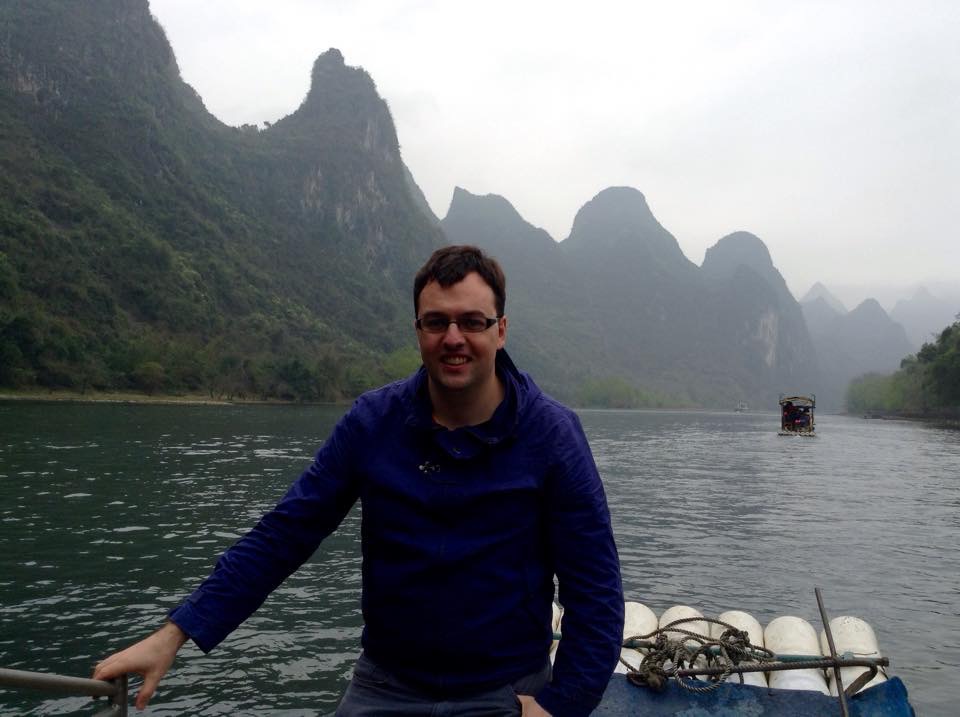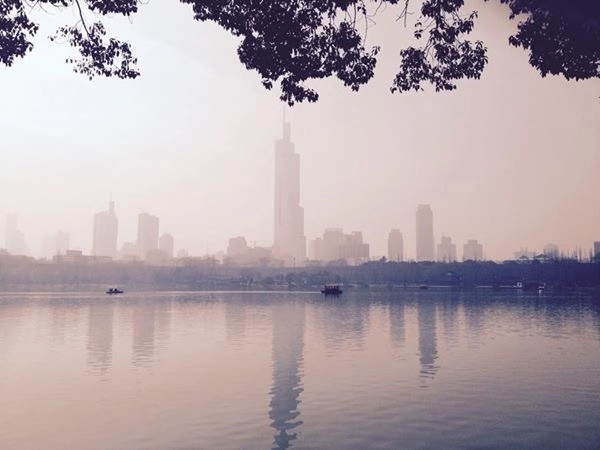Photo: David Tait
Spittoon’s Matthew Byrne catches up with British poet David Tait on the release of his new book, The AQI.
~~~
Matthew Byrne: You’ve published chapbooks in Britain and won writing awards there in the past. What was it about China that attracted you?
David Tait: I suppose my first “artistic” interest in China came during a trip to Norway, of all places, many years ago. There was an art exhibition in Bergen entitled China Power Station that was an accumulation of contemporary Chinese art, which I found fascinating. I’d also watched a number of movies and read a number of books about China that interested me, and these continue to interest me. I remember vividly a documentary called Beijing Bubbles (or something similar) which was all about the contemporary music scene….
Then I met my bf back in England and an opportunity to move to China and work as a teacher opened up. Never looked back, really.
MB: Did you expect to be writing the kind of poetry here in China that you’ve produced with Three Dragon Day and The AQI?
DT: I must admit when I moved here I didn’t really know what to expect in terms of the directions my writing would take. I’m a wooly-minded liberal snowflake at heart, so I guess it was kind of inevitable that social issues would form a part of my writing development, but I’ve always been keen to avoid being a lecturer or overly didactic in my poems – which I guess has led to this strange sideways-ironic voice that is somewhat different to that employed in my earlier work.
MB: Did the environments where you found yourself in China change or develop your writing style or perception during the course of your writing?
DT: Definitely, particularly city landscapes. Looking at the big issues through individual small moments is definitely something that has developed since I’ve lived here. The big issues that people are grappling with (loneliness, overwork, cultivated aphasia, pollution) are almost too big to tackle head on, so they have to be taken on in this small piecemeal way. Each poem becomes a mosaic towards a bigger picture.
MB: Reading through The AQI, its themes of living in pollution and imagery specific to China are striking and prevalent. How spontaneous was this inspiration? Was it a reaction to circumstance or were these subjects you planned to tackle?
DT: Definitely spontaneous. I believe in Robert Frost when he says “no surprise in the writer, no surprise in the reader” – and it would feel quite calculating to have a plan to write a book based around a whole topic. Generally when I’m writing a new book or pamphlet I don’t focus on a topic – I just write – and then as themes start to emerge I begin to realize what it is I’m writing about. Whenever I try to write more “towards a target” from the outset I find the writing feels a bit forced and inauthentic.
MB: How far do you feel the poems might need to go to educate people outside China about what it’s like inside China?
DT: It’s a good question, but I don’t really think of my poems as having an educational role, nor indeed do I really see them as making an intentional political point. Poems are public property – you write them and then they take on a life of their own, meaning something different to everyone who comes across them.
MB: What is new about these poems compared to your work in the past?
DT: I used to write cheerful and hopeful love poems and I now write poems about air pollution, hopelessness and death. I’m definitely maturing.
MB: How do you feel people back home in Britain will react to these poems and their content?
DT: Reception generally has been quite positive. The AQI got shortlisted for The Forte Prize and The Polari Book of the Year and the reviews in various magazines and newspapers seem to find the “inside view” of China quite interesting and different to the other, perhaps more exoticized/orientalized poetry they have read before. Some people told me it makes them want to come and see China for themselves, so that was quite nice. I hope they enjoy it here as much as I do, but also I hope their poems are a little more cheerful, perhaps.


David Tait‘s most recent book The AQI was shortlisted for The Forte Prize and The Polari Prize. He lives in Shanghai, China.

Matthew Byrne founded Spittoon in 2015 and operates as its Director.
